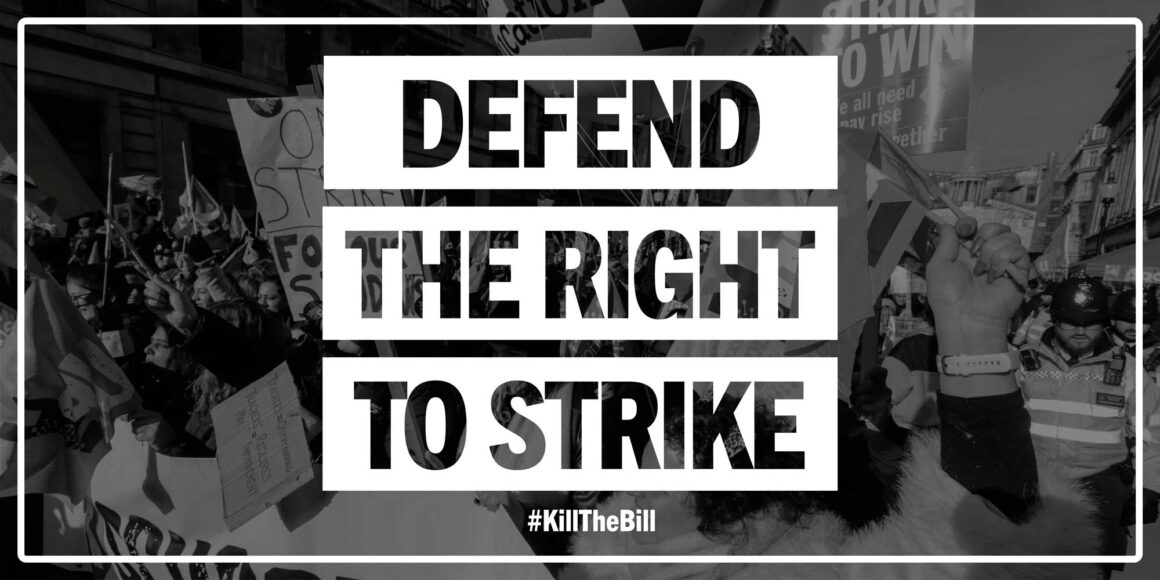

By Steven Ellis
SINCE LAST summer, the trade union movement has been anticipating the Tories’ new Act, imposing obligations on unions to work with management to provide ‘minimum service levels’ during strikes in some industries. The Strikes (Minimum Service Levels) Act was the latest in a series of desperate attempts by a dying government to prove its ‘strength’ at the expense of workers.
The test came as part of the long running pay dispute on the railways. The government pressured train companies to impose the legislation, but most understandably had no desire to be the fall guy in a political dispute, even before they started to consider the (im)practicalities of how it would work. The only taker that could be mustered was LNER, the east coast train company which is directly owned by the government following a shambolic collapse of the franchise run by Virgin Trains back in 2017.
Aslef promptly announced that there would be an additional five days of strike action called on LNER over and above the day’s action on other train companies. While there was an element of shadow boxing with the state company never publicly admitting that they were seeking to implement the minimum service legislation and Aslef not able to officially state that the action was called on those grounds, everyone was clear what was at stake.
On 22 January, the battle was over before it began when LNER behind the scenes backed off any attempt to enforce the legislation and Aslef accordingly withdrew the additional days of action. Even Personnel Today was moved to comment that this seemed an indication that the legislation is now a ‘paper tiger’. If even a company wholly owned by the state chickens out before strike action has even begun what chance do others more remote from the controlling hand of the government have?
The episode is a clear indication of the obvious lesson that while organising national demonstrations in Cheltenham and lobbying parliament is all very well, it is through industrial action that we have the power to push back. Other unions should follow Aslef’s lead and should go further to challenge other elements of the restrictive web of anti trade union legislation that entangles workers.